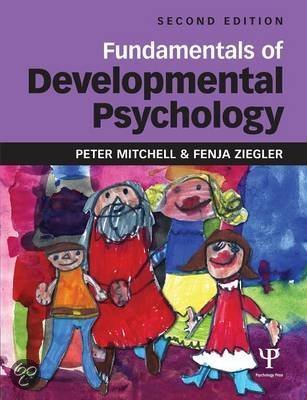A child’s development of intelligence 1
Which concept is more integral to a child’s development of intelligence: nature, nurture,
or an interactionalist approach.
Module: Lifespan A Developmental psychology
Word count: 915 words
, A child’s development of intelligence 2
Historically, defining intelligence has been a disputed topic in developmental psychology, but
a widely accepted definition comes from Sternberg (1997), which states, intelligence is a
range of mental abilities (e.g. cognitive abilities) required for adjusting and selecting for an
environmental alteration, measured by intelligence quotient tests (IQ). This definition seems
to adopt an empiricist view of development, encompassing itself in the concept of nurture,
which regards the environment as exerting an influence on intellectual development through
social (family style and womb domain) factors (Neisser et al, 1996). An opposing perspective
would be nativism, which focuses on the sole impact of nature on intelligence such as
inheritance (Plomin & Deary, 2014). Furthermore, a third emerging view: interactionalist
approach, accounts for the interplay between nature and nurture factors on intellectual
development, this viewpoint concerns itself with the fact that, individuals may be genetically
predisposed to possessing a higher IQ but without the environmental stimulation, this
intellectual boost can never occur (Lewkowicz, 2011). Through the lens of the interactionist
approach, this essay will exhibit various studies, to communicate the necessity for both nature
and nurture influences on intellectual development.
The concept of nature being the driving force for intellectual development has been explored
through various methods for instance, twin studies. Bouchard et al, 1990, performed a battery
of IQ tests on 56 MZ twin pairs, who were reared apart from various countries using
professional psychometrics. Results showed that the correlation between MZ twins reared
apart through the test apparatus ranged from .64 to .74. This evidence does suggest that
genetics can play a role in intelligence due to the strong correlation between MZ twins reared
apart but Woodworth (1941) cited in Michell & Ziegler (2013) disputes this argument as it
was shown that even if MZ twins were reared apart, there was extensive overlap in their
environments, establishing that this overlapping environment could be the trigger for
intelligence as Woodworth subsequently, found that MZ twins reared apart with similar home





